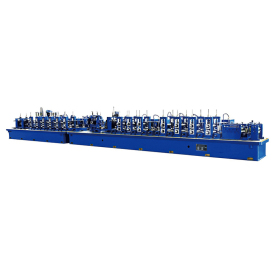[Industrial induction heating equipment]The Revolutionary Impact of Industrial Induction Heating Equipment on Manufacturing Processes and Energy Efficiency in Modern Industries
News 2024-8-28

The Revolutionary Impact of Industrial Induction Heating Equipment on Manufacturing Processes and Energy Efficiency in Modern Industries
Induction heating is not a new concept, but its application in industrial settings has transformed the way manufacturers approach heating processes. Industrial induction heating equipment utilizes the principles of electromagnetic induction to create heat within conductive materials. This technology has been adopted across various sectors due to its numerous advantages, including efficiency, precision, and sustainability. In this article, we will explore the critical role of industrial induction heating equipment in enhancing manufacturing processes, reducing energy consumption, and promoting overall sustainability in industrial practices.
Understanding Induction Heating Technology
At its core, induction heating relies on the generation of high-frequency alternating current in a coil, which creates a magnetic field. When a conductive material is placed within this magnetic field, eddy currents are induced in the material, generating heat due to its electrical resistance. This process allows for rapid and uniform heating, making it particularly effective for applications such as metal hardening, soldering, brazing, and melting.
Advantages of Industrial Induction Heating Equipment
1. **Energy Efficiency**: One of the most significant advantages of induction heating is its energy efficiency. Traditional heating methods, such as convection and conduction, often result in significant heat loss. In contrast, induction heating directs energy precisely where it is needed, leading to minimal waste. As industries seek to reduce operational costs and minimize their carbon footprints, the transition to this technology becomes increasingly attractive.
2. **Precision and Control**: Industrial induction heating equipment is known for its remarkable precision. Manufacturers can easily control the heating process by adjusting the frequency and intensity of the electromagnetic field. This level of control helps to ensure that materials are heated to the exact temperatures required for specific applications, which is crucial in processes such as metal treatment. Overheating or underheating is significantly reduced, leading to improved product quality and reduced scrap rates.
3. **Speed**: Induction heating provides rapid heating cycles compared to conventional methods. This speed translates to shorter production times, which is a vital factor in high-demand manufacturing environments. For instance, the ability to quickly heat materials allows for increased throughput on assembly lines, which can lead to improved overall productivity.

The Revolutionary Impact of Industrial Induction Heating Equipment on Manufacturing Processes and Energy Efficiency in Modern Industries
Applications Across Industries
The versatility of industrial induction heating equipment allows it to be used in various industries, including automotive, aerospace, metalworking, and even food processing. In the automotive sector, induction heating is often used for hardening components such as gears and crankshafts, improving their durability and performance. In the aerospace industry, it plays a crucial role in the precision manufacturing of critical parts that must adhere to strict safety standards.
The food processing industry has also begun to adopt induction heating for tasks such as pasteurization and sterilization, leveraging its speed and efficiency for improved food safety while maintaining energy savings.

The Revolutionary Impact of Industrial Induction Heating Equipment on Manufacturing Processes and Energy Efficiency in Modern Industries
As industries continue to prioritize efficiency and sustainability, the future of industrial induction heating equipment looks promising. Continuous advancements in technology promise to enhance the capabilities of induction heating, making it even more efficient and adaptable. Innovations such as improved power supplies, advanced control systems, and greater integration with automation and Industry 4.0 technologies are expected to drive the proliferation of induction heating applications.
In conclusion, industrial induction heating equipment is not just a tool; it is a critical enabler of modern manufacturing practices. Its ability to deliver energy-efficient, precise, and safe heating makes it an invaluable asset in today's fast-paced industrial environment. As manufacturers face increasing competition and pressures to minimize waste and energy consumption, the adoption of induction heating technologies will likely accelerate, paving the way for a more sustainable and efficient future in manufacturing.
